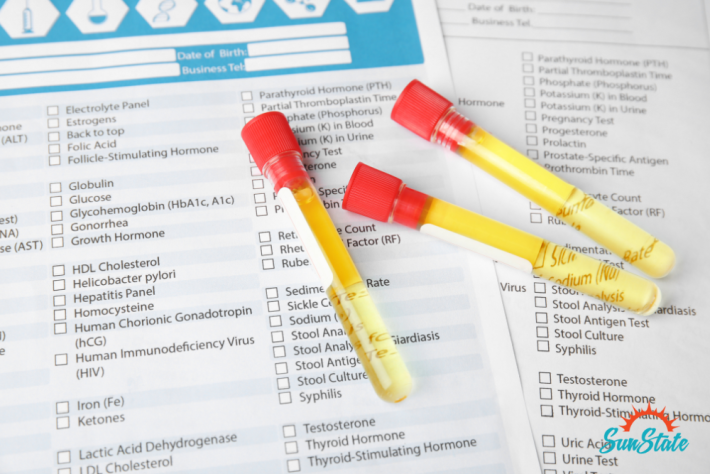The Ultimate Guide: How Much Water Should You Drink Before a Drug Test?
Are you about to take a drug test and wondering how much water you should drink beforehand? Look no further – we have the ultimate guide for you! In this article, we will delve into the topic of water consumption prior to a drug test and provide you with all the information you need.
Importance of Hydration for Drug Tests
Proper hydration is crucial when it comes to drug testing. The human body is composed of approximately 60% water, which plays a vital role in eliminating toxins and drug metabolites. Adequate hydration helps dilute these metabolites in the urine, potentially making it easier to pass a drug test. Conversely, dehydration can lead to a concentrated urine sample, which may result in a positive drug test even if you’ve abstained from drug use for a significant period.
Hydration also supports the health of your liver and kidneys, which are responsible for metabolizing and eliminating drugs and their byproducts. By keeping your body well-hydrated, you enhance the efficiency of these vital organs.
Understanding the Drug Testing Process
Drug testing is common in various settings, including employment, sports, and law enforcement. The main types of drug tests include:
- Urine Drug Tests: The most widely used, detecting a range of substances with detection windows from a few days to several weeks.
- Blood Drug Tests: More accurate and capable of detecting recent use, but with a shorter detection window of a few hours to a few days.
- Saliva Drug Tests: Less invasive, these tests can detect recent use with a detection window of a few hours to a few days.
Understanding the type of drug test you will take and its detection window is crucial for determining your hydration strategy.
Factors That Affect Water Consumption for Drug Tests
Several factors can influence how much water you should drink before a drug test:
- Body Size and Composition: Larger individuals may require more water for hydration.
- Metabolism: Faster metabolisms may necessitate higher water intake.
- Drug Type and Usage: The type and amount of drugs used can impact the concentration of metabolites in the body.
- Timeframe Since Last Drug Use: Longer intervals since last use may require less water.
- Medication and Supplement Use: Some medications can affect hydration needs.
- Underlying Health Conditions: Conditions affecting the liver or kidneys may alter water requirements.
Recommended Water Intake Before a Drug Test
While the recommended water intake varies, here are general guidelines:
- Urine Drug Tests: Drink 12-16 ounces (350-475 mL) about 2-4 hours before the test.
- Blood Drug Tests: Aim for 8-12 ounces (240-350 mL) about 1-2 hours prior.
- Saliva Drug Tests: Similar to blood tests, drink 8-12 ounces (240-350 mL) about 1-2 hours before.
Excessive water consumption can lead to hyponatremia, raising suspicion during the test.
Significance of Urine Color in Drug Testing
The color of your urine can indicate your hydration level:
- Pale Yellow or Clear Urine: Well-hydrated; ideal for drug tests.
- Dark Yellow or Amber Urine: Indicates dehydration; higher concentration of metabolites.
- Transparent or Colorless Urine: May indicate overhydration; could be seen as an attempt to mask drug use.
Aim for a pale yellow hue to ensure optimal hydration without excessive dilution.
Overhydration and Its Impact on Drug Test Results
Overhydration can lead to serious health issues and may dilute drug metabolites to undetectable levels, resulting in false-negative results. This can raise suspicions and lead to further scrutiny or disciplinary actions.
To avoid overhydration, follow the recommended intake guidelines and spread your water consumption over a few hours.

Hydration Strategies for Optimal Drug Test Results
To ensure you are properly hydrated for a drug test, consider these strategies:
- Gradual Hydration: Increase water intake in the days leading up to the test.
- Timed Water Consumption: Follow the recommended water intake schedule.
- Electrolyte Balance: Incorporate electrolyte-rich beverages to maintain balance.
- Avoid Excessive Intake: Do not drink large amounts right before the test.
- Monitor Urine Color: Check your urine color regularly to adjust intake.
- Supplement with Creatine: Consider creatine to maintain urine creatinine levels.
- Consult a Healthcare Professional: Seek personalized guidance if needed.
Other Methods to Detoxify Before a Drug Test
In addition to hydration, some may consider other methods to detoxify before a drug test:
- Detox Supplements: Be cautious with supplements claiming to eliminate drug metabolites; research their efficacy and safety.
- Dilution Techniques: Adding substances to dilute urine is often detected and considered cheating.
- Abstinence and Time: The most reliable method to ensure a negative result is to abstain from drug use well before the test.
Common Misconceptions About Water Consumption Before Drug Tests
Addressing these misconceptions can help you make informed decisions:
- Myth: Excessive water guarantees a negative test.
Fact: Too much water can lead to overly diluted urine, raising suspicion. - Myth: Adding substances can mask metabolites.
Fact: Tampering is detectable and can lead to serious consequences. - Myth: Detox products eliminate metabolites completely.
Fact: Their effectiveness is often unproven and can be considered cheating. - Myth: Drinking water right before the test is enough.
Fact: Gradual hydration is more effective.
Conclusion: The Importance of Proper Hydration for Accurate Drug Test Results
In conclusion, proper hydration is essential for ensuring accurate drug test results. By understanding the testing process, the factors influencing hydration, and following recommended intake guidelines, you can enhance your chances of passing the test.
Striking the right balance is crucial—too little water can lead to concentrated urine, while too much can cause excessive dilution. Monitor your urine color, adjust your water consumption, and consider electrolyte replenishment for optimal hydration.
Ultimately, the best way to pass a drug test is to abstain from drug use for the appropriate timeframe and maintain proper hydration. For personalized advice, consult with a healthcare professional or the testing facility. With the right information and preparation, you can navigate the drug testing process confidently.



